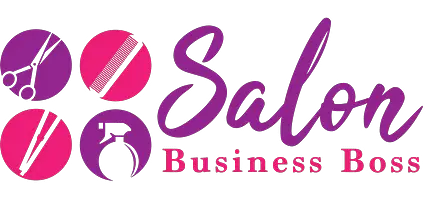Owning a salon is an attractive business venture because of its creative appeal and promising market, but you should know what a salon owner is responsible for before making this commitment.
The main duties of a salon owner include:
● Business duties, like accounting, marketing, hiring, verifying licenses, schedule, and salon design
● Deciding which services to offer
● Leading by example in these services
● Choosing product lines to offer
● Ensuring cleanliness of the facility
● Customer service
Read on to explore these duties that apply to business ownership, salon procedure, and customer service.
Business Duties of a Salon Owner
While salon owners should have a good grasp on trends and aesthetics, they need to have a good mind for business to be successful. These duties include:
● Accounting
● Marketing
● Hiring employees
● Verifying licensing or certificates
● Scheduling
Proper business management is the cornerstone to cultivating a thriving salon.
Accounting

A salon owner should be able to evaluate different financial aspects to report profits and losses, provide adequate pay, and evaluate the budget when making decisions.
An accountant can cover this work, but the salon owner needs to know what they are doing and why they are doing it. Understanding where money is going and why it is happening will help the salon owner make the appropriate changes when needed.
Marketing
Marketing involves many different aspects, including:
● Social media management
● Advertising
● Running promotions
Marketing duties should focus on the intended customer base and how a salon owner can best attract and serve them. Marketing campaigns need to be effective enough to draw in new customers and reward loyalty without putting a salon at a financial disadvantage.
Hiring
Salon owners make the final decision when it comes to hiring employees. They need to decide what positions need to be filled, what qualifications they are looking for, and who is the best fit for that position.
A salon owner can also decide to rent out a booth to specific individuals so they can offer their own services. This is not a good fit for every salon, but it is a possible avenue for salons getting started.
Licensing/Training Checks
When hiring the salon owner needs to verify that employees have the proper licensing to provide services in their area. Hiring someone without the appropriate training or faulty licensing can result in lawsuits against the salon.
A salon owner also needs to keep track of when these licenses expire and check back with their employees to make sure everything stays up to date.
Scheduling
The salon owner is usually tasked with creating a schedule of which employees will be available at which times. This can be more difficult than it is with other businesses because salons can offer a wider range of services, and customers are more likely to prefer services from a certain individual.
At the very least, a schedule should take advantage of what a salon has to offer and what is demanded in the area. Salon owners need to keep track of employee availability to ensure fair coverage.
Procedural Duties of a Salon Owner
Beyond their operations as business owners, salon owners should have a grasp on the procedures offered in their business. Duties in this area include:
● Deciding which services to offer
● Leading by example and performing services
● Choosing products to work with
● Ensuring the cleanliness of the salon
These may seem like tasks for a salon employee, but without understanding in these areas, a salon owner risks mismanaging their business.
What are some disadvantages to owning a hair salon?
Deciding What Beauty and Aesthetic Services to Offer

A salon can offer a wide range of services, including:
● Hairstyling
● Waxing
● Makeup application
● Skincare
Salon owners need to know what services are in high demand in their area so they can ensure that need is met.
Leading by Example
A salon owner should also understand how to perform these services and what is considered standard. A salon owner that can do the work will build trust with their employees and their community, and they will be able to gauge employee performance.
While a salon owner may not always be on the floor styling hair, they should be able to give tips and pointers as well as acknowledge their employee’s good work.
Choosing and Learning About Products to Work With
Most salons work exclusively with certain lines, and they offer these products in-house for customers to buy. This adds a retail value to the salon, extending beyond the services provided.
A salon owner is responsible for choosing products they can easily recommend, and they should understand how to get the most out of those products. This information needs to be passed onto employees so they can better help customers make a purchasing decision or address concerns.
Ensuring Cleanliness and Sanitization of Facility
If a salon is not clean or properly sanitized then the salon owner is the one that will be punished for it.
Owners should have a clear standard set in place for employees to meet when it comes to the cleanliness of the salon. A salon owner needs to ensure that this standard is met, as well as provide the supplies necessary to do so.
If salon employees are struggling in this area then the salon owner needs to address this concern and take up the responsibility until employees are relieved from duty or brought to the standard.
Customer Service Duties of a Salon Owner

As with any other business, the salon owner has the final say in any dispute relating to the business. They are responsible for resolving issues:
● With customers
● With employees
● With the public
A decision should be made in a timely fashion and in such a way that all parties walk away feeling heard and seen. The salon owner needs to be able to read people to determine motivation and expectations, but they should also balance this information with logic to keep a business mind.
Customer service duties rely heavily on personality, but they can be learned through research and experience.
Related Questions

Can a salon owner hire someone to help manage these duties?
A salon owner can hire a salon manager to pass on some of the responsibilities and allow for more downtime or time providing services. They can also hire professionals in fields such as accounting or marketing to manage these tasks.
How much do salon owners pay themselves on average?
Salon owners make an average of $70,000 per year from their business, but this number changes depending on location and services offered.
How do salon owners usually pay their employees?
A salon owner can pay their employees through commission or hourly, or a combination of the two. An employee cannot make less than the minimum hourly wage in the state the salon is registered.
Looking to start your own Salon? Get the documents you need to get organized and funded here.
Please note: This blog post is for educational purposes only and does not constitute legal advice. Please consult a legal expert to address your specific needs.

About the author. Entrepreneur and Salon Business Fan.
Hi! I am Shawn and I am a happy individual who happens to be an entrepreneur. I have owned several types of businesses in my life from a coffee shop to an import and export business to an online review business plus a few more and now I create online salon business resources for those interested in starting new ventures. It’s demanding work but I love it. I do it for those passionate about their business and their goals. That’s why when I meet a salon business owner, I see myself. I know how hard the struggle is to retain clients, find good employees and keep the business growing all while trying to stay competitive.
That’s why I created Salon Business Boss: I want to help salon business owners like you build a thriving business that brings you endless joy and supports your ideal lifestyle.

